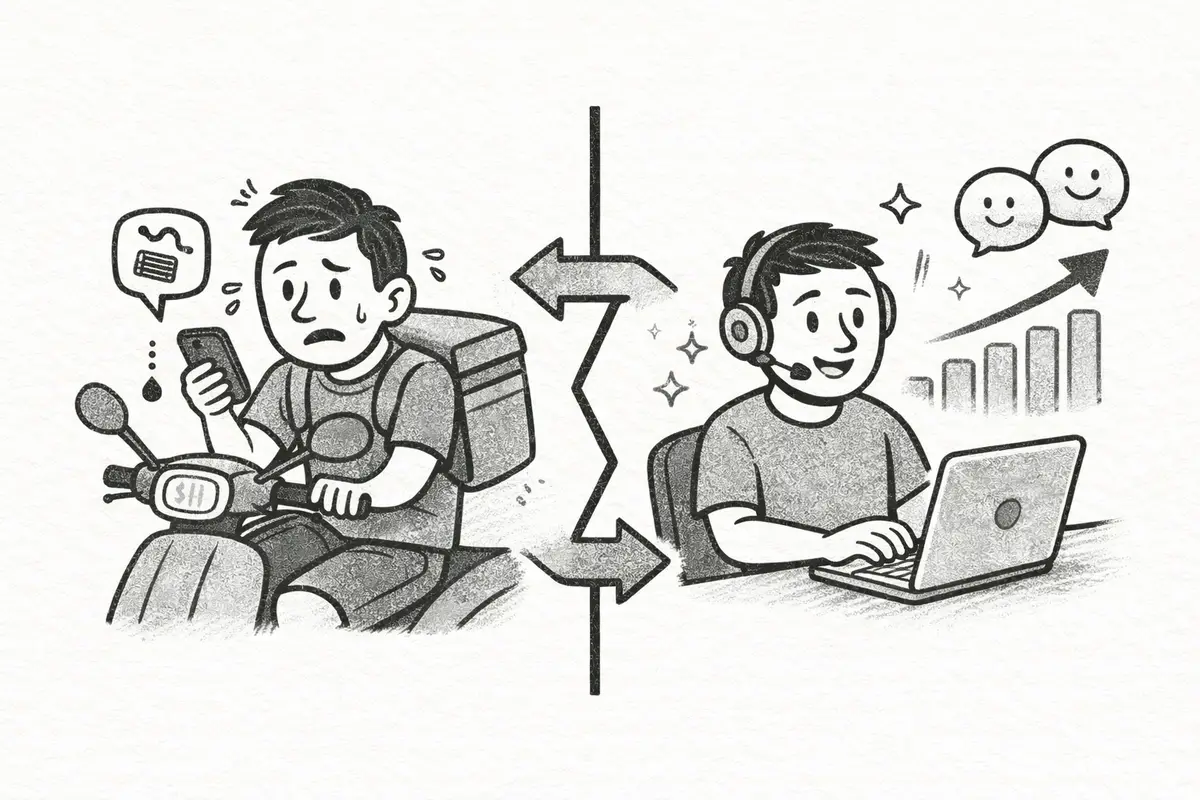So, the great escape. It’s still on.
You’d think after the whole world got a taste of working from the couch, the novelty might’ve worn off. Nope. If anything, it just poured gasoline on a fire that was already smoldering. The idea that work is a place you go to? That’s feeling more and more like a relic, something we’ll tell our grandkids about, like dial-up modems or Blockbuster Video. The laptop lifestyle isn’t some fringe movement for influencers and crypto bros anymore. It’s turning into a real, viable path for regular folks—accountants, project managers, writers, you name it.
And the best part? Countries are finally getting with the program.
For years, being a digital nomad was a game of tiptoeing through legal grey areas. You’d roll into a country on a tourist visa, whisper “I’m just here for vacation,” and pray no one at immigration asked too many questions about the brand-new MacBook in your bag. It was a stressful, don’t-ask-don’t-tell dance. But the world’s piggy banks took a massive hit a few years back, and suddenly, a person who earns foreign currency and spends it locally looks less like a problem and more like a godsend.
Hence, the explosion of the digital nomad visa. It’s a golden ticket. A legitimate, above-board invitation to come, stay a while, and for God’s sake, please buy some coffee and pay for rent. But not all visas are created equal. Some are bureaucratic nightmares, others are a walk in the park. Let’s spill the tea on the top contenders for 2025, the ones that are actually worth the paperwork.
Spain: More Than Just Siestas and Sangria
Spain was a bit late to the party, which is kind of on-brand, if you think about it. But when they finally showed up, they did it right. Their digital nomad visa, launched in 2023, has been a game-changer. Seriously. The government basically looked at what Portugal was doing, took notes, and decided to make it even better.
The income requirement is reasonable, sitting at around €2,600 a month. It’s not peanuts, but it’s a hell of a lot more attainable than some of the other European options. What’s the real kicker, though? The tax situation. For the first few years, you’re looking at a flat tax rate of 24% on your Spanish-sourced income, which, if you’re a remote worker for a foreign company, is likely zero. It’s a sweet, sweet deal. It’s a thing that, when you think about it, really makes you wonder what took them so long.
The vibe? It’s Spain. It’s alive. You can find your tribe, whether you’re a surf bum in the Canary Islands, a culture vulture in Madrid, or you just want to eat your weight in pintxos in the Basque Country. The internet is fast, the cost of living is manageable (outside the tourist-clogged centers of Barcelona, anyway), and the quality of life is just… chef’s kiss. The application can be done from within Spain, meaning you can come on a tourist visa, fall in love with the place, and then sort out the paperwork. That flexibility is huge.
Japan: The Unexpected Newcomer
Now this one was a shocker. Japan. For decades, Japan has been notoriously difficult to immigrate to. The idea of them offering a visa specifically for freelancers and remote workers felt like a pipe dream. But in a bid to revitalize rural areas and inject some fresh blood into its aging economy, they’ve finally done it. The visa, expected to be in full swing by early 2025, is a massive deal.
Let’s be real, this one isn’t for the casual nomad. The rumored income requirement is steep—we’re talking in the ballpark of $67,000 USD per year. They’re not looking for backpackers; they’re looking for established professionals. But if you can clear that hurdle, my God. You get to live and work in Japan for a year, with the possibility of renewal.
Imagine finishing your workday and then wandering through the neon-drenched streets of Shinjuku. Or taking a weekend trip to a serene onsen in the mountains. The efficiency, the safety, the food—it’s a world unto itself. And the coffee, well, the coffee is a whole other story, a good one. This visa is for the person who doesn’t just want a change of scenery but a full-blown cultural immersion. It’s for the person who craves order and chaos in equal measure. The catch? The bureaucracy will likely be intense. This is Japan, after all. Expect to fill out forms in triplicate and have every document scrutinized with microscopic precision. But for the right person, it will be worth every single second of the headache.

Portugal: The OG Is Still in the Game
Ah, Portugal. The one that started it all, really. For years, its D7 visa was the holy grail for anyone with a passive income stream. Then they launched a specific digital nomad visa, and the floodgates opened. Lisbon and Porto became so saturated with remote workers that you could barely hear Portuguese spoken in some neighborhoods.
Has the shine worn off? A little, maybe. The cost of living in the popular spots has skyrocketed. The government has been making noises about tweaking the tax benefits. It’s not the undiscovered paradise it was in, say, 2019.
But here’s the thing: Portugal is still fantastic. You just have to be a bit smarter about it. Look beyond Lisbon. Check out the Silver Coast, or the rugged beauty of the Alentejo region. The country is so much more than its two main cities. The visa process is still straightforward, the income requirements are among the lowest in Western Europe (around €3,200/month), and the pathway to residency and even citizenship is incredibly clear. Plus, you’ve got the whole of the Schengen Area as your backyard. For Americans looking for a solid foothold in Europe, Portugal remains one of the best, most reliable options on the table. It’s just not a secret anymore.
Colombia: The Dark Horse of the Americas
South America has been a nomad hotspot for ages, but it’s always been on a tourist visa basis. Colombia decided to change that. Their digital nomad visa is a statement: we’re open for business, we’re safe, and we’re ready for you.
And people are listening. The appeal is obvious. The cost of living is ridiculously low. You can live like a king in cities like Medellín or Bogotá for a fraction of what you’d pay in the US or Europe. The internet infrastructure, especially in the main cities, has improved by leaps and bounds.
But it’s the energy of the place that gets you. It’s a country that has been through hell and has come out the other side with this infectious, vibrant, forward-looking spirit. The people are warm, the landscapes are breathtaking—from the Caribbean coast to the coffee-growing highlands—and the culture is rich and intoxicating. The income requirement is a joke, something like $700 a month. It’s almost laughably accessible. Of course, you need to have your wits about you. It’s not Switzerland. But the narrative of it being some dangerous narco-state is decades out of date. It’s one of the most exciting, dynamic, and—frankly—fun places you can plant your flag for a year or two.
So, What’s the Catch?
Look, this all sounds great. And it is. But it’s not a permanent vacation. This is the part the Instagram posts leave out.
You still have to work. You’ll have days where you’re stuck on a miserable Zoom call while the sun is shining outside. You’ll have to deal with taxes, and that’s a beast. You’ll probably need to hire an expert to figure out your obligations back home versus your new host country, because it gets complicated, fast.
And then there’s the loneliness. It’s real. You’re untethered from your support system. Making friends as an adult is hard enough; making them in a foreign country where you don’t speak the language is a whole other level of difficulty. You have to put yourself out there, again and again. It can be exhausting.
The digital nomad life isn’t an escape from reality. It’s just a trade. You’re trading the comfort and predictability of home for novelty and adventure. You’re trading your commute for a visa application. Some days, that trade feels like the best deal you’ve ever made. On other days, you’d kill for a familiar grocery store and a conversation that doesn’t require a translation app.
The world is cracking its doors open for people like us. These visas are more than just legal documents; they’re a sign of a profound shift in the global mindset. The question is no longer if you can work from anywhere. The question is, where do you want to go? Just remember to pack your patience along with your passport. You’re going to need it.
You might also like: The Science of Focus: How to Actually Get Work Done in 2026









